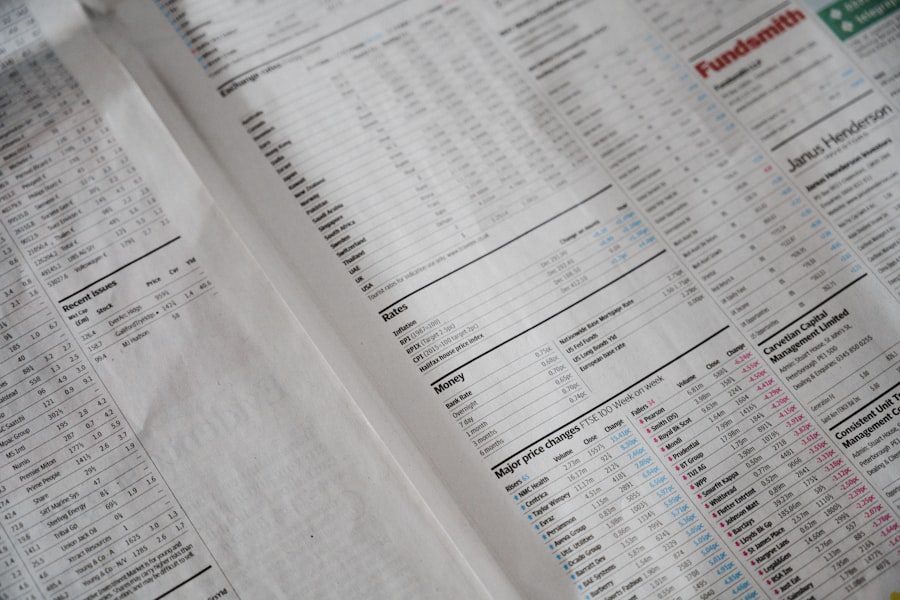Building credit is a fundamental aspect of personal financial management. An individual’s credit history and credit score significantly influence their access to financial products and services, including loans, credit cards, and mortgages. A robust credit history can also affect one’s ability to rent property, secure employment, or obtain favorable insurance rates.
In essence, creditworthiness serves as an indicator of financial responsibility and reliability to lenders and other institutions. A high credit score can provide access to more favorable interest rates and terms on loans and credit cards. It also enhances negotiating power when seeking advantageous terms for major purchases, such as vehicles or real estate.
Furthermore, establishing and maintaining good credit contributes to financial security and stability by demonstrating proficiency in debt management and consistent payment habits. Understanding the significance of credit building is crucial for individuals aiming to achieve long-term financial success and stability.
Key Takeaways
- Building credit is important for accessing financial opportunities and achieving long-term financial stability.
- Establishing a solid foundation for your credit history involves paying bills on time, keeping credit card balances low, and avoiding opening too many new accounts at once.
- Using credit responsibly, such as making timely payments and keeping credit utilization low, can help build a positive financial history.
- Monitoring your credit report and score regularly can help you identify and address any errors or fraudulent activity that may impact your credit.
- Building credit with different types of accounts, such as credit cards, loans, and utility bills, can demonstrate responsible financial behavior to lenders.
- Avoiding common credit mistakes, such as missing payments, maxing out credit cards, and closing old accounts, can help maintain a healthy credit history.
- Seeking professional help, such as credit counseling or financial coaching, can provide guidance and support in building and maintaining your credit.
Establishing a Solid Foundation for Your Credit History
Secured Credit Cards: A Great Option for Newcomers
One way to do this is by opening a secured credit card, which requires a cash deposit that serves as collateral for the credit limit. This can be a great option for those who are new to credit or have a limited credit history.
Becoming an Authorized User: Leverage Someone Else’s Good Credit
Another way to establish a solid foundation for your credit history is by becoming an authorized user on someone else’s credit card account. This allows you to benefit from their positive payment history and can help you build your own credit history.
Diversifying Your Credit Accounts with Installment Loans
Additionally, taking out a small installment loan, such as a personal loan or a car loan, can also help you establish a positive payment history and diversify the types of credit accounts on your credit report.
Using Credit Responsibly to Build a Positive Financial History

Using credit responsibly is essential for building a positive financial history. This means making timely payments on all of your accounts, keeping your credit card balances low, and only applying for new credit when necessary. Making on-time payments is one of the most important factors in determining your credit score, so it’s crucial to pay at least the minimum amount due on all of your accounts by the due date each month.
Additionally, keeping your credit card balances low relative to your credit limits can help improve your credit utilization ratio, which is another important factor in determining your credit score. Ideally, you should aim to keep your credit card balances below 30% of your available credit limit. Finally, only applying for new credit when necessary can help minimize the number of hard inquiries on your credit report, which can negatively impact your credit score.
Using credit responsibly is essential for building a positive financial history. This means making timely payments on all of your accounts, keeping your credit card balances low, and only applying for new credit when necessary. Making on-time payments is one of the most important factors in determining your credit score, so it’s crucial to pay at least the minimum amount due on all of your accounts by the due date each month.
Additionally, keeping your credit card balances low relative to your credit limits can help improve your credit utilization ratio, which is another important factor in determining your credit score. Ideally, you should aim to keep your credit card balances below 30% of your available credit limit. Finally, only applying for new credit when necessary can help minimize the number of hard inquiries on your credit report, which can negatively impact your credit score.
Monitoring Your Credit Report and Score
| Metrics | Description |
|---|---|
| Credit Score | A numerical representation of an individual’s creditworthiness |
| Credit Report | A detailed record of an individual’s credit history |
| Credit Utilization Ratio | The ratio of credit used to credit available, expressed as a percentage |
| Payment History | A record of an individual’s on-time and late payments |
| Credit Inquiries | A record of entities that have accessed an individual’s credit report |
Monitoring your credit report and score is an important part of building and maintaining good credit. By regularly checking your credit report, you can ensure that all of the information being reported is accurate and up-to-date. You can also identify any potential errors or fraudulent activity that may be impacting your credit score.
In addition to monitoring your credit report, it’s also important to keep an eye on your credit score. Your credit score is a numerical representation of your creditworthiness and is used by lenders to assess the risk of lending to you. By monitoring your credit score, you can track your progress in building good credit and identify any areas that may need improvement.
There are many free tools and resources available that allow you to monitor your credit report and score, so there’s no excuse not to stay informed about your financial standing. Monitoring your credit report and score is an important part of building and maintaining good credit. By regularly checking your credit report, you can ensure that all of the information being reported is accurate and up-to-date.
You can also identify any potential errors or fraudulent activity that may be impacting your credit score. In addition to monitoring your credit report, it’s also important to keep an eye on your credit score. Your credit score is a numerical representation of your creditworthiness and is used by lenders to assess the risk of lending to you.
By monitoring your credit score, you can track your progress in building good credit and identify any areas that may need improvement. There are many free tools and resources available that allow you to monitor your credit report and score, so there’s no excuse not to stay informed about your financial standing.
Building Credit with Different Types of Accounts
Building credit with different types of accounts can help diversify your credit profile and demonstrate responsible financial management. In addition to traditional revolving accounts like credit cards, consider adding installment loans such as student loans or auto loans to your mix of accounts. These types of loans show that you can manage different kinds of debt responsibly.
Another way to diversify your accounts is by adding retail store cards or gas cards to the mix. These types of accounts are typically easier to qualify for than traditional bank-issued cards and can help build positive payment history if managed responsibly. Additionally, consider adding a mortgage or home equity line of credit (HELOC) once you’re ready for homeownership.
These types of installment loans can further demonstrate responsible financial management and diversify your mix of accounts. Building credit with different types of accounts can help diversify your credit profile and demonstrate responsible financial management. In addition to traditional revolving accounts like credit cards, consider adding installment loans such as student loans or auto loans to your mix of accounts.
These types of loans show that you can manage different kinds of debt responsibly. Another way to diversify your accounts is by adding retail store cards or gas cards to the mix. These types of accounts are typically easier to qualify for than traditional bank-issued cards and can help build positive payment history if managed responsibly.
Additionally, consider adding a mortgage or home equity line of credit (HELOC) once you’re ready for homeownership. These types of installment loans can further demonstrate responsible financial management and diversify your mix of accounts.
Avoiding Common Credit Mistakes

Making Late or Missed Payments
Missing payments or making late payments on your accounts can have a significant negative impact on your credit score and may stay on your credit report for up to seven years. To avoid this mistake, set up automatic payments or reminders to ensure that you never miss a due date.
Maxing Out Credit Cards
Maxing out your credit cards or carrying high balances relative to your limits can negatively impact your credit utilization ratio and lower your credit score. To avoid this mistake, aim to keep your balances low relative to your limits and consider paying off balances in full each month if possible.
Closing Old Accounts or Applying for Multiple New Accounts
Closing old accounts or applying for multiple new accounts within a short period of time can lower the average age of your accounts and increase the number of hard inquiries on your report, both of which can negatively impact your score.
Seeking Professional Help to Build and Maintain Your Credit
Seeking professional help to build and maintain good credit can be beneficial for those who are struggling with their finances or need guidance in managing their debt effectively. Credit counseling agencies offer services such as budgeting assistance, debt management plans, and educational resources that can help individuals improve their financial literacy and make informed decisions about their money. Additionally, working with a reputable financial advisor or certified financial planner can provide personalized guidance on how to build and maintain good credit based on individual financial goals and circumstances.
These professionals can offer tailored advice on managing debt, improving spending habits, and creating a solid financial plan for the future. Seeking professional help to build and maintain good credit can be beneficial for those who are struggling with their finances or need guidance in managing their debt effectively. Credit counseling agencies offer services such as budgeting assistance, debt management plans, and educational resources that can help individuals improve their financial literacy and make informed decisions about their money.
Additionally, working with a reputable financial advisor or certified financial planner can provide personalized guidance on how to build and maintain good based on individual financial goals and circumstances. These professionals can offer tailored advice on managing debt, improving spending habits, and creating a solid financial plan for the future. In conclusion, building goodcredit is an essential part of achieving financial success and stability.
By understanding the importance of buildingcredit, establishing a solid foundation foryourcredit history,and usingcredit responsibly,you can lay the groundwork for a positive financial future.Buildingcredit with different typesofaccountsand avoiding commoncredit mistakesare also crucial steps in maintaining goodcredit over time.Finally, seeking professional helpto buildand maintainyourcreditcan provide valuable guidanceand supportin navigatingthe complexitiesof personal finance.By taking proactive stepsand staying informedaboutyourcredit standing,youcan set yourself upfor long-termfinancial successand security.
If you’re looking to build up your credit, it’s important to understand the impact of your financial decisions. One way to do this is by being mindful of your borrowing habits. A recent article on CashAdvance.express discusses the importance of responsible borrowing and how it can affect your credit score. By being aware of your financial choices, you can take steps towards improving your credit and overall financial health. Check out the article here for more information.
FAQs
What is credit?
Credit is the ability to borrow money or access goods or services with the understanding that you’ll pay for them later. It’s based on the trust that you’ll repay what you’ve borrowed.
Why is building credit important?
Building credit is important because it can affect your ability to get a loan, rent an apartment, or even get a job. A good credit history can make it easier to qualify for loans and get better interest rates.
How do you build up credit?
You can build up credit by paying your bills on time, keeping your credit card balances low, and only opening new credit accounts when necessary. You can also consider getting a secured credit card or becoming an authorized user on someone else’s credit card.
How long does it take to build up credit?
Building credit takes time and depends on your individual financial situation. It can take several months to a few years to establish a good credit history.
What are some common mistakes to avoid when building credit?
Common mistakes to avoid when building credit include missing payments, maxing out credit cards, and applying for multiple credit accounts at once. It’s important to be responsible with your credit use to build a positive credit history.












